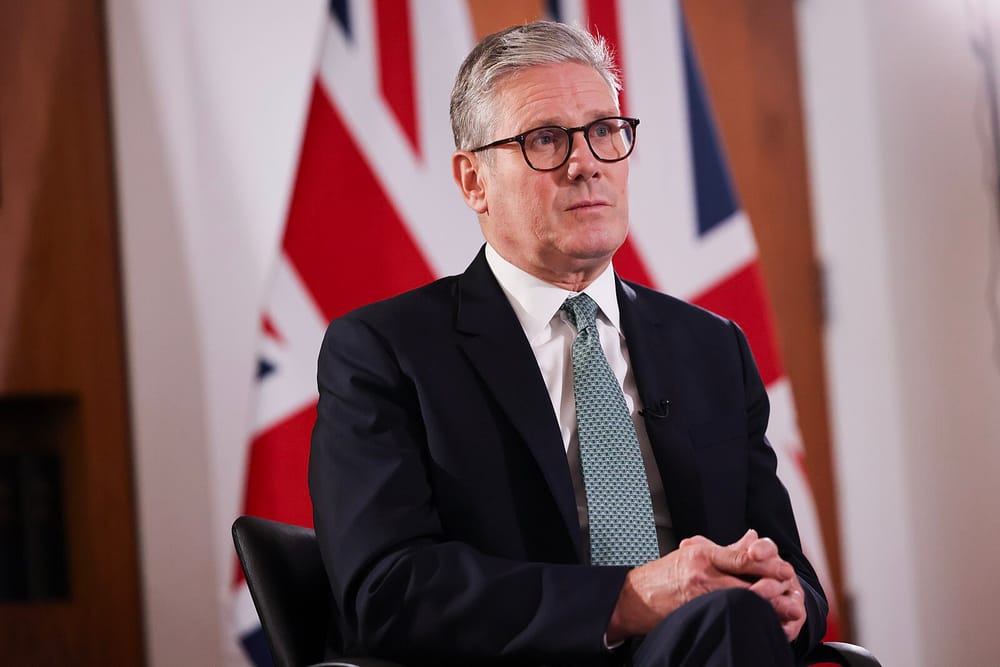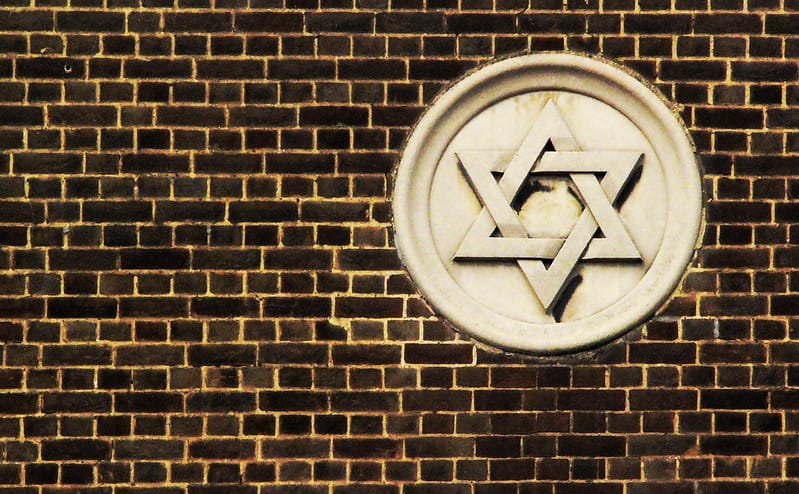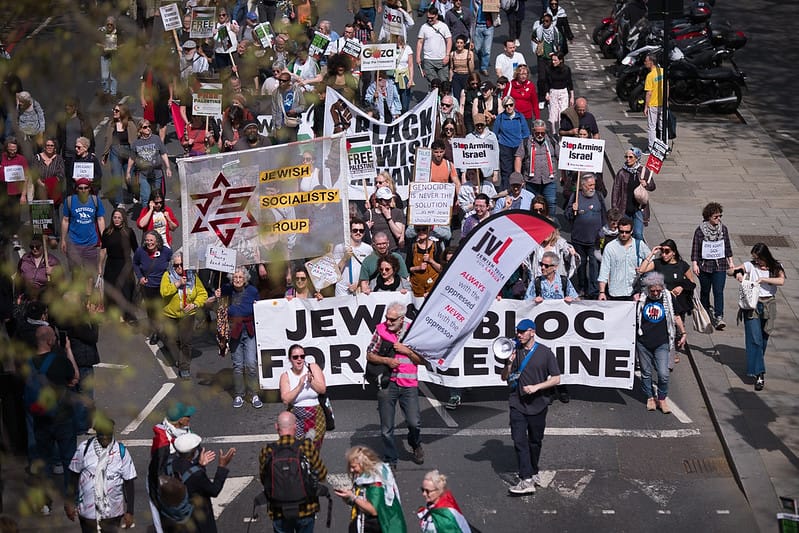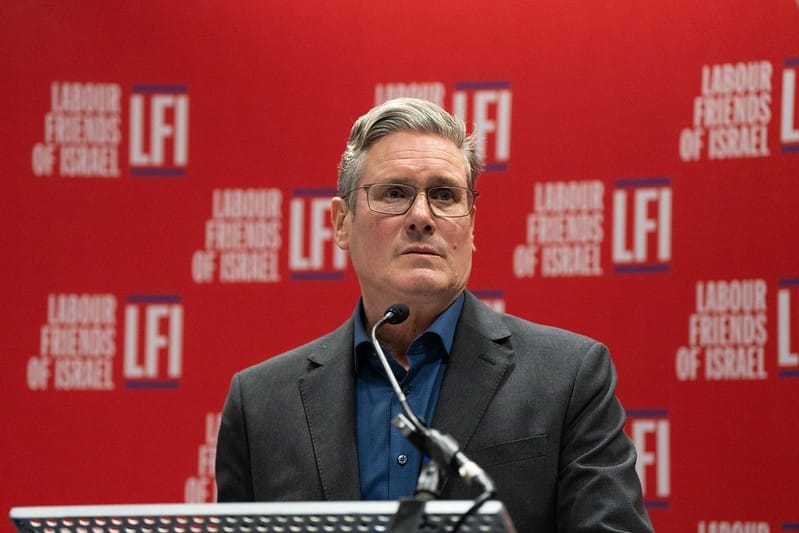‘This stuff is homegrown’
Vashti interviews David Rosenberg on what his lifetime of anti-racist and anti-fascist organising can teach us about confronting the far-right today.
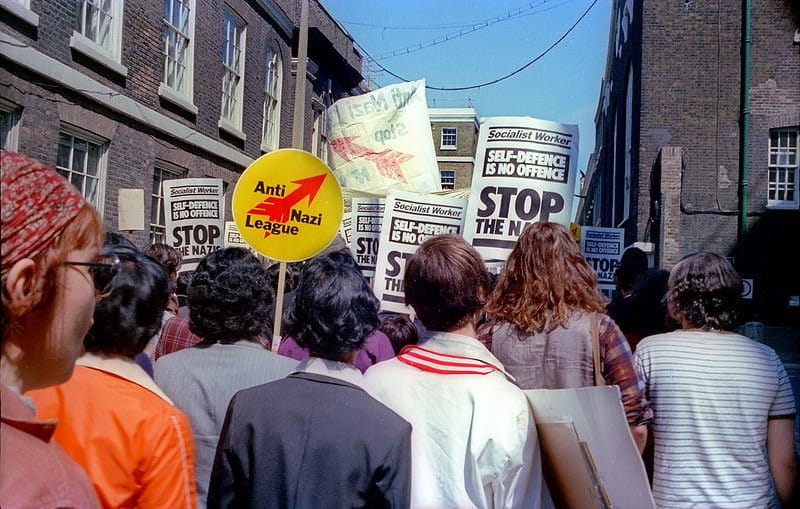
Over the past few weeks, the UK has witnessed a surge in far-right violence, as well as the mobilisation of anti-fascist counter-demonstrations in response. In light of these events, Vashti editor Emily Coatman sat down with writer David Rosenberg to gain perspective on what a lifetime of principled anti-racist and anti-fascist activism can teach those on the left hoping to make sense of and confront this moment head on.
Rosenberg has been part of anti-fascist street protests since 1975, and active in the Jewish Socialists’ Group since late 1976. He previously worked for the anti-racist charity, Runnymede Trust, off Brick Lane, and is the author of Battle for the East End. In 2016, he convened the Cable Street 80 commemorations, and regularly leads radical city tours of the East End.
This interview has been edited for length and clarity.
Emily: Having lived through and written about fascist violence in the 70s and 80s, do you feel that there are any parallels with the atmosphere that we’re experiencing now?
David: You do have superficial similarities in terms of a lot of street violence by fascists. But the specific street violence that we're getting now comes after at least two decades of state-sponsored Islamophobia, in which the whole British establishment has had a very big hand. This includes demonising migrants and refugees, and especially Muslim migrants and refugees. The number of people in the mainstream political system who are going out on a limb to defend migrants and refugees has gotten smaller and smaller. Starmer joining the “stop the boat” chorus and saying that the problem with the Tories is that they're not efficient enough in deportations, just feeds, strengthens and emboldens the far-right.
9/11 was a key moment. I'm one of these anoraks that analyses what was happening inside the fascist movement at that time, and what caused them to turn towards Islamophobia as opposed to their more generalised anti-immigrant sentiment. That was starting to happen a year or two before 9/11. Previously they mainly talked about Black or Asian immigration.
With the shift post-9/11 to the “war on terror,” as the government called it, the fascists realised that if they pushed specifically anti-Muslim arguments they would be supported by lots of people. The toxic atmosphere created by the Prevent strategy, which has really negatively impacted young Muslims, aided them in these efforts.
That is what the far-right are building on today. They're seizing an opportunity, exploiting Southport as a pretext. It’s not a pretext, but they are using it as one. However far the political establishment goes in normalising Islamophobia, the far-right will always want to go harder and quicker. So, everything has been pushing in that direction, and the far-right are the main beneficiaries.
Does that earlier period of activism in the 70s and 80s provide any lessons, not just for Jews, but for all anti-racism organising?
The first Asian immigrant to be murdered in that period was Tosir Ali, in 1970. At a community meeting in the East End following his murder, Solly Kaye, a Jewish Communist Party councillor who had been active at Cable Street in the 30s, turned up. He said that racism can be defeated, but it can only be defeated by united action, black and white, and it must not be left to the community under attack to bear the brunt of that fight. I think that, in those few sentences alone, there are some really important lessons.
It's not only about what happens on the streets. Probably the most important thing that I take from all this is the need to fight racism on many different levels. It's also about trying to change some of the narratives.
At the moment there's a big emphasis on Tommy Robinson. I think that we have to look at the wider ideological programme of groups like Reform UK, which won over 4m votes at the election, and see how much they fall in line with what's happening in continental Europe, and also beyond, in Israel, India and America.
Farage has his counterparts abroad, and he mixes very easily in the circles where the hard-right, the far-right and the conspiracy theorists hang out and coalesce. I would appeal to anti-fascists to not be too Anglocentric about it.
What do you make of people saying that Israel is orchestrating the recent upsurge in far-right violence?
I think the idea that the British far-right needs help from Israel to be Islamophobic, to follow its own longstanding racist tendencies, is very dangerous and useless for the movement. This stuff is homegrown. Of course, there are significant sections of the far right that have identified with Israel. When Tommy Robinson was starting out with the EDL, they brought loads of Israeli flags and got people to hold them on protests because they wanted to wind up Muslims and create tension between Jews and Muslims.
There's no doubt that there is now a more serious Israel-identifying element of the far-right, but that is driven mostly by Islamophobia. And if they admire Israel, it is not because Israel is Jewish, it is because Israel is doing really terrible things to Muslims and to the Palestinians. But, the stuff about finance, that it is Zionist finance pushing this? These are just old antisemitic tropes about Jewish money.
The Jewish Socialists’ Group (JSG), of which you are a longtime member, has an extensive anti-fascist history, as do you. Let's now turn to you and your history as part of this movement.
I was at Leeds University between 1976 and 1979. A lot of my anti-fascist activity happened there with the Anti-Nazi League (ANL), after it formed in late 1977. In between term times, I would come down to London and get involved in demonstrations, particularly in East London. The Jewish establishment were desperate to try to discourage young Jews from getting involved with the ANL, claiming it was led by anti-Zionists. There was loads of correspondence in the Jewish Chronicle about it.
So we [the JSG] were very much part of making the case for Jews to get involved as a matter of principled anti-racism. In 1978 you had these two big events – Rock Against Racism and ANL marches and carnivals. Lots of Jews ignored the Jewish establishment and joined them. We were very committed to the ANL, but we also had some criticisms of it from within. It wasn't run on model democratic principles. We were keen to inject more democracy into it.
Did you have much success?
I’m not sure that we did. There were critiques coming from different directions, but we were criticising from a standpoint of being absolutely involved, and not standing outside of it just to criticise it. We were very committed, because the job that the ANL was doing at the time was really important.
Its main political aim was to drive a wedge between the hardcore Hitler-worshipping Nazi leadership of fascist groups and the more diffuse angry, young, frustrated and often unemployed young people that were being drawn to them, and who were starting to accept their racist arguments about immigrants being the cause of the problems they faced.
Through their political and cultural work, ANL and Rock Against Racism did a really significant job. But we also had a sense that it was not enough. They were much better at doing that work to drive that wedge between the hardcore Nazis and the people being attracted to fascists than they were at other things. They made the arguments about why people shouldn't scapegoat immigrants, but their arguments around what immigration controls meant, what state racism meant, were relatively weak compared with other aspects of what they were doing.
They faced pushback from groups emerging from different minority communities that were anti-fascist, but who also wanted to emphasise opposition to state racism.
In 1979, Thatcher came into office, and, although the ANL can take a lot of credit for defeating the fascists on the streets, she absorbed part of that fascist support into the Conservative Party. These people could now vote Conservative, happy in the knowledge that the Tory government was supporting racist policing and pushing harder against immigration.
What kinds of relationships did you have with the communities experiencing state racism?
In that period in the late 70s, when I was coming back to London occasionally from university, I was getting involved with some of the demonstrations in the East End. A lot of these involved the Bengali community. In the early 80s, when I was living in Newham, east London, I was involved with the Newham Monitoring Project. We were supporting people who were getting it in the neck from racist policing. They were being harassed by police or being arrested. We were building up connections with people there, but they weren't necessarily from the Bengali community exclusively. There were also people from Pakistani, Indian, and Caribbean communities.
The East End has been such a flashpoint since the 1930s. The anti-fascists have long dreamt of recreating another Battle of Cable Street, and the fascists have always wanted to come back and do what previous fascists failed to do, and actually succeed in marching through the East End. Every so often over the years, there've been attempts by the far-right to target East London, and the JSG has been part of demonstrations – mainly led by Bengali activists – to oppose this.
We really respect what happened in the 70s as a crucial part of anti-fascist, anti-racist history. So, whenever we commemorate Cable Street, that history absolutely needs to be included. The commemorations have always had a significant number of Bengali and Jewish speakers, which is made possible by the very easy connection and relationship that exists between us.
Another project I was involved with more recently was an oral history of Bengali youth movement activists from the late 70s, who we were able to track down thanks to photographs taken at the time. Back then, a guy called Paul Trevor, who was living just off Brick Lane bought himself a camera and just went out photographing the area. He ended up catching the right moment because things were exploding politically all around him. We managed to track down about 40 of the activists, who had been mostly in their teens or early twenties at the time.
It tells a very important story which goes back to what we were talking about earlier. If you ask a lot of white anti-racist, anti-fascist activists from the late 70s what the most important moments of the movement were, they would probably say something about the battle to push the National Front out from the end of Brick Lane and Bethnal Green Road. Fascists would come there every Sunday morning in bigger and bigger numbers, and putting a stop to these provocations was really important work.
But when we interviewed Bengali activists, some of whom used to take part in that Sunday morning activity, these encounters were rarely the most important thing that they recollected. Their issues were the 24/7 racism that they faced, particularly at school, where one goal was to get there and back without getting beaten up. And in school the racism didn’t only come from their fellow pupils, but from the teachers as well. It was also the problems with the police, and problems over housing. Their lives were dominated by experiences of racism, not just from organised fascists, who were in fact just a small part of it.
They and the youth movements they created not only played a big part in pushing the fascists out, but they also played a very big part in challenging racism in many other spheres. Their efforts united young people and gave them self-confidence, and I think that is a story that still needs to be told much more widely.
Emily Coatman is an editor at Vashti
There’s no corporation or big advertisers behind Vashti – we're a workers' cooperative and rely on small donations to keep running. Support our journalism to help break the consensus.
To donate once, click here. To donate monthly, click here.
Author
Sign up for The Pickle and New, From Vashti.
Stay up to date with Vashti.

